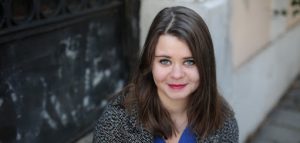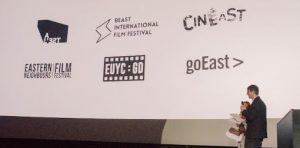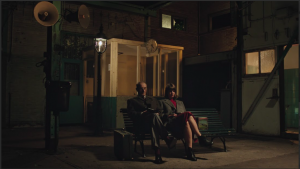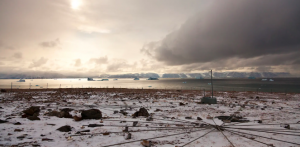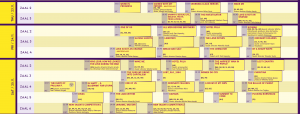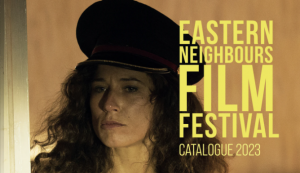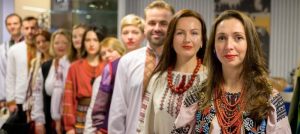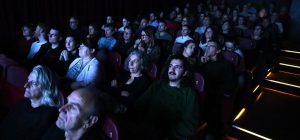
Stefan Pavlovic: the Film Allowed Me to Think of My Stuttering as a Creative Space
Author: Sandra Selakovic/Mama u Zemlji lala
The filmmaker Stefan Pavlovic was born in the Netherlands, but his origin is from Bosnia. Growing up surrounded by multilingualism, Stefan lost touch with his mother tongue and began to stutter as a child.
His poetic documentary Looking For Horses is a part of the Eastern Neighbours Film Festival special program The Power of Your Story. It is a homage to a friend and friendship, writes online magazine Mama u Zemlji lala. The story follows the birth of the relationship between the director and fisherman Zdravko, a war veteran who lost his hearing almost completely during the war in Bosnia and Herzegovina, and later partially lost his sight. Out of the desire to overcome the gap in communication between them, Stefan Pavlovic is experimenting, using a camera, which this time is not only an objective observer who only records events, but also enters the field of the intimate.
In one of the most translated books ever published, we can read that “It is only with the heart that one can see rightly; what is essential is invisible to the eye.” To what extent did the lack of common language with the surroundings force you to develop additional communication techniques?
We didn’t lack a common language; we had a different grasp of this language but shared motivation and honesty to spend time together. We made it work. I am not sure what additional communication techniques there are, but I believe that outside of the rigid and closed space of (academic) articulation lies a lot of room for understanding and gentleness. Listening, giving attention, silence, eye contact, and of course the camera, all became important communication techniques.
From your earliest childhood, you have been surrounded by very different languages. Is knowing the same language a prerequisite for a better understanding of each other’s needs?
In a way yes, of course. Understanding the words and sentences someone is speaking towards you, and being able to respond and ask questions in that same language creates a certain type of understanding, a daily understanding to avoid minor miscommunications. I do think there are deeper and different levels of understanding, outside the illusion of articulation. At the same time, understanding is also a type of illusion. Who knows what it is that we understand? And how do we know for certain that the person we speak to understands what it is we mean?
Your film is a poetic story of friendship and an attempt to overcome obstacles in connecting with others. Was art, as a universal language, the only way for you to alleviate anxiety and alienation?
I’m not sure whether art is a universal language. I am also unsure whether it should be a universal language. Through art, we can get a glimpse of the different (and similar of course) lives we all lead. The film, and more so the camera, was absolutely how Zdravko and I came together and created a common goal: finding the horses. The film also allowed me to think of my stuttering as a creative space, as a space to explore the themes of language, history, and trauma; it was not a disability anymore.
Screening: Thursday, April 21 at 5 PM in Filmhuis Den Haag


